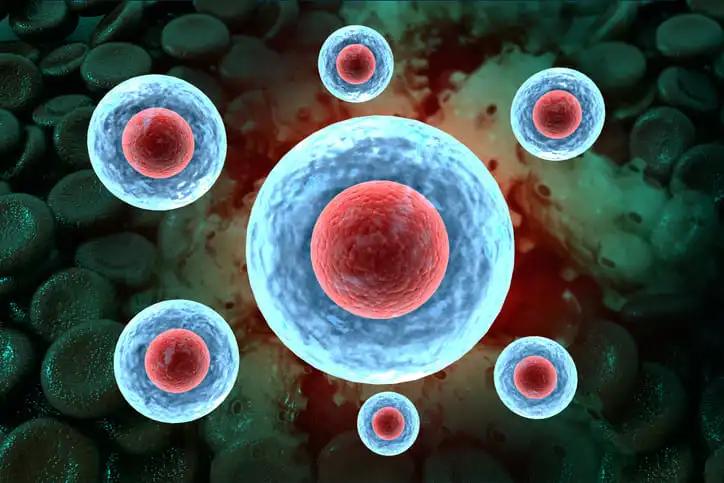KEY TAKEAWAYS
- The phase 3 TOPAZ-1 trial studied D, an ICI, plus GC in patients with advanced BTC.
- The primary aim of this exploratory subgroup analysis of TOPAZ-1 was to evaluate the impact of systemic antibiotic use on overall survival and progression-free survival.
- Patients were assigned a 1:0 chance to receive either D 1500 mg. Results showed that the use of antibiotics during ICI treatment.
- Progression-free survival in patients with advanced biliary tract cancer who received Durvalumab plus gemcitabine and cisplatin.
- Antibiotic use was similar between treatment groups, and the study found that patients who used antibiotics had a shorter median OS in the PBO + GC arm.
- The findings suggest that administering antibiotics to Durvalumab patients when medically necessary is a safe and viable option.
Durvalumab (D), an immune checkpoint inhibitor (ICI), plus gemcitabine and cisplatin (GC) in patients (pts) with advanced biliary tract cancer (BTC), is being studied in Phase 3 double-blind TOPAZ-1 (NCT03875235) trial. Patients with advanced BTC had better overall survival (OS) when treated with D plus GC than PBO plus GC (Oh et al., NEJM Evid 2022). Poorer overall survival and progression-free survival (PFS) have been linked to the use of antibiotics during ICI treatment (Jiang et al. Front Oncol 2022). Patients were assigned a 1:0 chance to receive either D (1500 mg) or PBO on day 1 of every three weeks (Q3W), plus G (1000 mg/m2 and C (25 mg/m2) on days 1 and 8 of every three weeks (Q3W), for 8 cycles. This exploratory subgroup analysis of TOPAZ-1 aimed to evaluate the impact of systemic antibiotic use on overall survival and progression-free survival (from the time of the first dose of D/PBO to the time of the last amount of D/PBO). Using an unstratified Cox proportional hazards model, estimated HRs were adjusted for disease status (irresectable or recurrent) and primary tumor site (intrahepatic cholangiocarcinoma, extrahepatic cholangiocarcinoma, or gallbladder cancer). The preliminary analysis data cutoff was on August 11th, 2021.
Antibiotic use was similar between treatment groups, with 167 (341%) of patients receiving D + GC and 167 (344%) receiving PBO + GC. Median overall survival (95% CI) in the D + GC arm was similar for patients who did and did not take antibiotics, coming in at 12.6 (9.7-14.8) months and 13.0 (10.8-14.7) months, respectively. Patients who used antibiotics had a shorter median overall survival time in the PBO + GC arm (95% CI) of 10.3 (8.7-12.5) than those who did not (12.1 (11.0-13.8)). For patients who were given antibiotics, the HR (95% CI) for D + GC versus PBO + GC was 0.78 (0.59-1.02), while for those who were not, the HR was 0.81 (0.62-1.07). Patients who took antibiotics in the D + GC arm had a median progression-free survival (95% CI) of 7.3 (6.5-7.7) months, while those who did not have a median progression-free survival of 7.2 (5.9-7.4) months. PFS HRs (95% CI) for patients who used antibiotics were 0.70 (0.55-0.89) compared to 0.82 (0.65-1.03) for those who did not. Results from the TOPAZ-1 study of D in BTC were similar to the primary analysis, showing no significant difference in OS or PFS between patients who used antibiotics during the research period and those who did not. These findings lend credence to administering antibiotics to D patients when medically necessary.
Source:https://meetings.asco.org/abstracts-presentations/217736
Clinical Trial:https://clinicaltrials.gov/ct2/show/NCT03875235
Aiwu He, Benjamin R. Tan, Thatthan Suksombooncharoen, Hidenori Takahashi, Ming-Huang Chen, Vikas S Ostwal, Sang Cheul Oh, Emel Sezer, Piotr Potemski, Kun-Ming Rau, Ekaphop Sirachainan, Junhe Li, Jean-Frédéric Blanc, Gordon Cohen, Magdalena Żotkiewicz, Nana Rokutanda, Do-Youn Oh/Outcomes by antibiotic use in participants with advanced biliary tract cancer treated with durvalumab or placebo plus gemcitabine and cisplatin in the phase 3 TOPAZ-1 study/J Clin Oncol 41, 2023 (suppl 4; abstr 550)
DOI10.1200/JCO.2023.41.4_suppl.550



